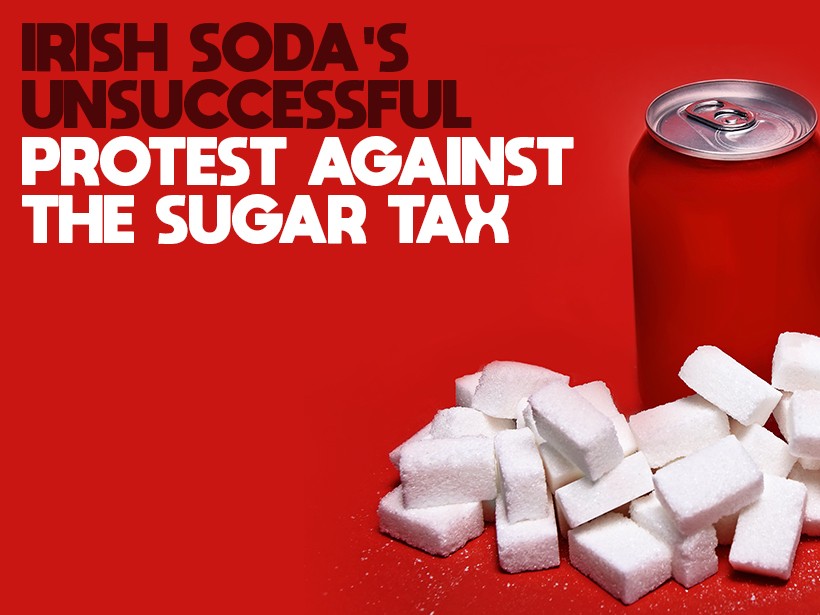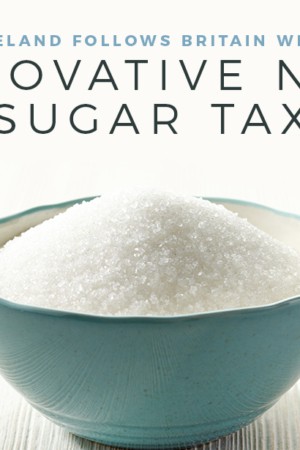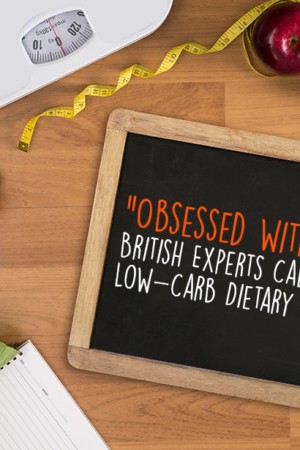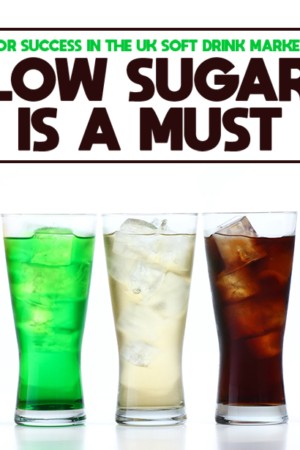A lot has been written, including by us here on Tasteaholics, about the start of the Irish soda tax and its British forbearer. In both countries, the similarly scaled taxes have worked to convince soda manufacturers to lower sugar content in their products in order to avoid the price hike. Experts are convinced that this is by far the most beneficial result of such a tax for public health, followed by its ability to deter consumers from purchasing as much soda as they once did. With the Irish tax’s implementation on May 1st, however, soda companies are griping about its allegedly unnecessary and discriminatory focus on their products and arguing that they’ve already done a lot to cut sugar.
Soda Claims Its Innocence
The Irish Beverage Council, an industry lobbying group, released a statement at the end of April arguing that the tax targets the wrong people. According to the organization’s director, Colm Jordan: “Soft drink companies were early movers in sugar reduction, beginning in 1983 when the first sugar-free carbonated drinks were introduced.” Jordan went on to describe the decades since then as a “35-year journey” in sugar reduction, as if instead of fighting with each other to hook customers the members of the soda industry have been working together to save lives for the last three and a half decades.1
An Accidental Admission: The Tax Works
The organization brought up one meaningful point: 76 percent of soft drinks will not be eligible for the Irish tax, meaning that their sugar content is below the minimum amount.2 The supposed significance of this figure is that the government is targeting the wrong products and that sugary sodas are not to blame for the obesity crisis. Importantly, however, the statement did not indicate what part of this percentage is in fact due to the tax, which like its extremely efficient British counterpart has incentivized many companies to cut sugar in the months leading up to its implementation. Many of the products included in this 76 percent are undoubtedly newly low-sugar thanks to companies’ efforts to avoid the upcoming tax. Indeed, the tax’s very success may lie in this same statistic, which demonstrates the multidimensional effectiveness of its tiered structure.3
“Wherever a tax has been introduced it has failed to tackle obesity,” said Colm, deciding not to acknowledge that similar taxes in Mexico and France are so new that they have yet to yield significant statistics. More than this, what statistics have been garnered from early comparative analyses show consistent, dramatic decreases in soda consumption. Of course, the industry lobby can hardly be expected to provide an accurate framework through which to understand the issue, and Colm wouldn’t be a very good director if he did so. One should take solace in the fact, however, that despite its resistance the Irish soda industry is as of this month begrudgingly subject to the new tax.
NUTRITIONAL DISCLAIMER
The content on this website should not be taken as medical advice and you should ALWAYS consult with your doctor before starting any diet or exercise program. We provide nutritional data for our recipes as a courtesy to our readers. We use Total Keto Diet app software to calculate the nutrition and we remove fiber and sugar alcohols, like erythritol, from the total carbohydrate count to get to the net carb count, as they do not affect your blood glucose levels. You should independently calculate nutritional information on your own and not rely on our data. The website or content herein is not intended to cure, prevent, diagnose or treat any disease. This website shall not be liable for adverse reactions or any other outcome resulting from the use of recipes or recommendations on the Website or actions you take as a result. Any action you take is strictly at your own risk.
- For Keto, the Everyday Research Says it All - March 6, 2019
- Huge Harvard Study Backs Up the Wide-Ranging Benefits of a Low-Carb Diet - February 25, 2019
- Experts Convene for Keto Conference - July 30, 2018




